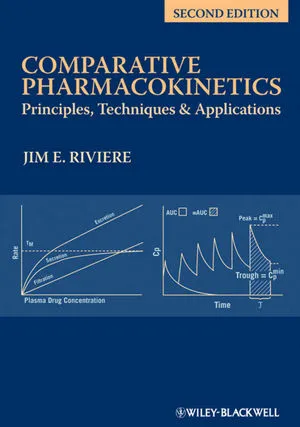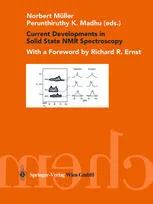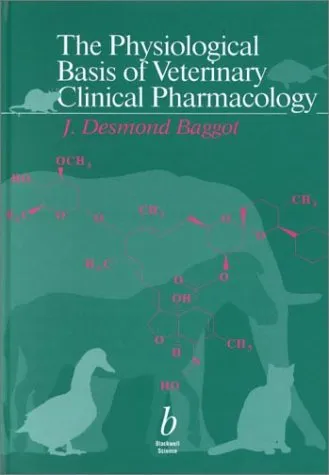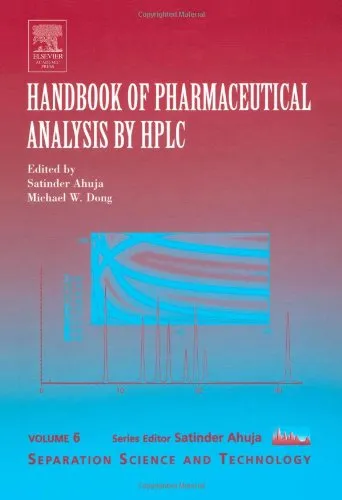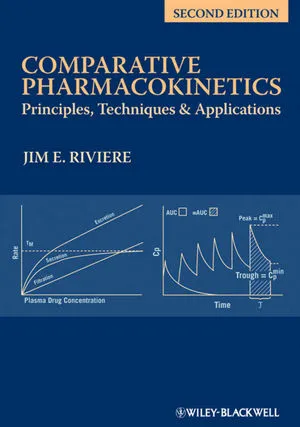Comparative Pharmacokinetics: Principles, Techniques and Applications
4.0
Reviews from our users

You Can Ask your questions from this book's AI after Login
Each download or ask from book AI costs 2 points. To earn more free points, please visit the Points Guide Page and complete some valuable actions.Related Refrences:
Welcome to the detailed introduction to "Comparative Pharmacokinetics: Principles, Techniques and Applications", a comprehensive resource authored by Jim E. Riviere that delves into the study of drug kinetics across different species. This book serves as an essential guide for researchers, students, and professionals working in veterinary pharmacology, pharmaceutical sciences, and comparative medicine. Through a balanced blend of theory and practice, it presents fundamental concepts, advanced methodologies, and real-world applications, making it a cornerstone of knowledge for anyone interested in pharmacokinetics.
Summary of the Book
"Comparative Pharmacokinetics: Principles, Techniques and Applications" explores the diverse field of pharmacokinetics, focusing on the scientific principles associated with how drugs are absorbed, distributed, metabolized, and excreted across multiple species. This book is structured to cater to both novice readers and seasoned professionals. It begins by introducing basic pharmacokinetics concepts, ensuring a strong foundational understanding for readers unfamiliar with the discipline. Gradually, the book shifts to a comparative approach, analyzing differences and similarities in drug behavior across various species.
The text is rich with examples and case studies, allowing readers to appreciate the practical implications of pharmacokinetics in drug development, regulatory science, and veterinary medicine. It also delves into advanced techniques such as mathematical modeling and simulation, highlighting their role in predicting drug behavior. With a focus on real-world challenges, the book provides insights into how pharmacokinetics can address issues such as interspecies variability, drug toxicity, and the optimization of therapeutic regimens for animals and humans alike.
Each chapter is meticulously organized and provides clear learning objectives. This ensures that readers can easily navigate through the material and comprehend even the most complex topics. Whether you're seeking to understand the basics of clearance and bioavailability or looking to apply physiologically based pharmacokinetic (PBPK) modeling, this book is an indispensable reference tool.
Key Takeaways
- An in-depth understanding of pharmacokinetics across different species, from rodents to large animals and humans.
- Detailed discussions on experimental techniques and analytical tools used for pharmacokinetic studies.
- Guidelines for applying pharmacokinetics principles in drug formulation development, including dose adjustments and toxicity studies for various species.
- Insights into emerging trends such as physiologically based pharmacokinetic modeling and allometric scaling.
- Practical applications for addressing inter-species variability and optimizing drug safety and efficacy.
Notable Quotes from the Book
"Pharmacokinetics is not just about describing the journey of a drug through the body; it’s about predicting its destiny across the boundaries of species."
"Understanding interspecies differences isn’t a mere academic exercise—it is essential for ensuring drug safety and efficacy on a global and multi-species scale."
Why This Book Matters
The significance of "Comparative Pharmacokinetics: Principles, Techniques and Applications" cannot be overstated. In an era where the boundaries between veterinary and human medicine are increasingly blurred, understanding how drugs behave in different species has implications for drug discovery, safety testing, and therapeutic innovation. This book equips readers with the knowledge needed to navigate the complexities of pharmacokinetics and contribute to groundbreaking advancements in both veterinary and pharmaceutical sciences.
By offering a rare blend of fundamental science and applied knowledge, this book fosters critical thinking and problem-solving skills. It empowers readers to tackle real-world challenges such as optimizing drug dosages for diverse populations, addressing adverse drug reactions, and ensuring regulatory compliance. Whether you are a researcher, clinician, or regulatory scientist, this book provides practical tools to improve decision-making and enhance outcomes.
In summary, "Comparative Pharmacokinetics: Principles, Techniques and Applications" is more than just a textbook—it is a valuable companion for anyone committed to advancing the science of pharmacology and improving health outcomes across species.
Free Direct Download
You Can Download this book after Login
Accessing books through legal platforms and public libraries not only supports the rights of authors and publishers but also contributes to the sustainability of reading culture. Before downloading, please take a moment to consider these options.
Find this book on other platforms:
WorldCat helps you find books in libraries worldwide.
See ratings, reviews, and discussions on Goodreads.
Find and buy rare or used books on AbeBooks.
1287
بازدید4.0
امتیاز0
نظر98%
رضایتReviews:
4.0
Based on 0 users review
Questions & Answers
Ask questions about this book or help others by answering
No questions yet. Be the first to ask!
